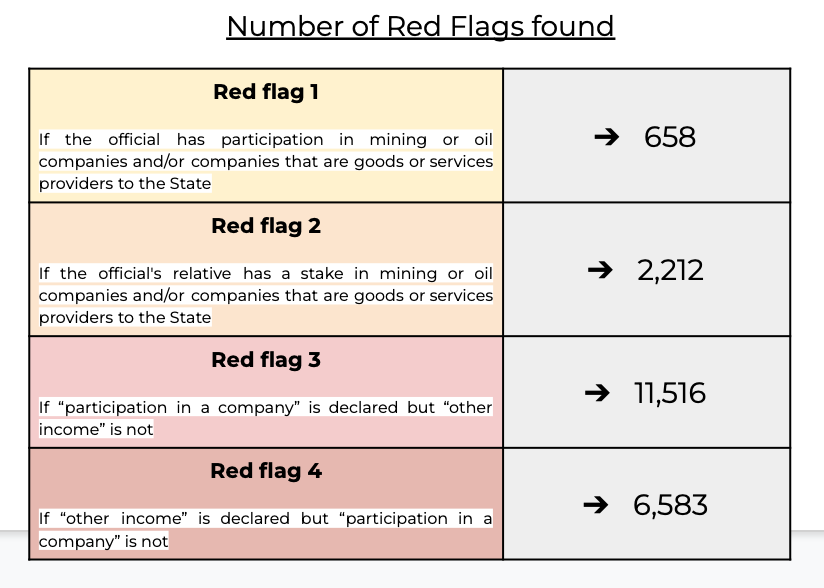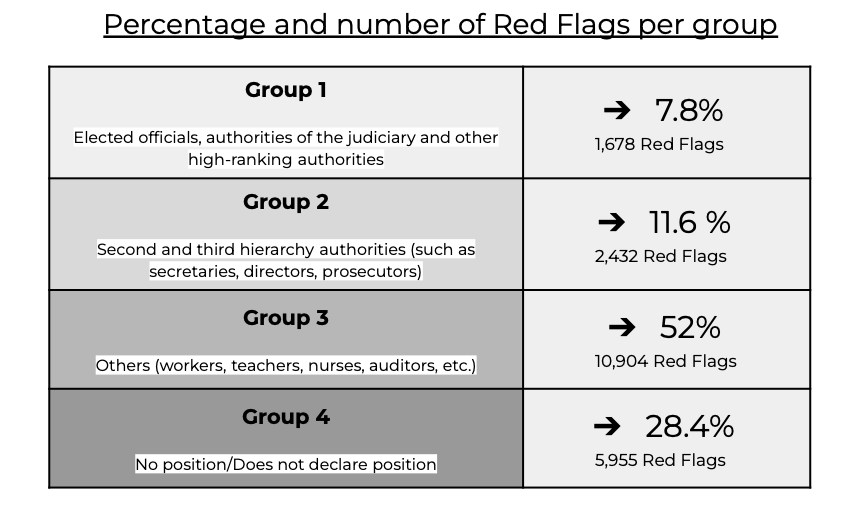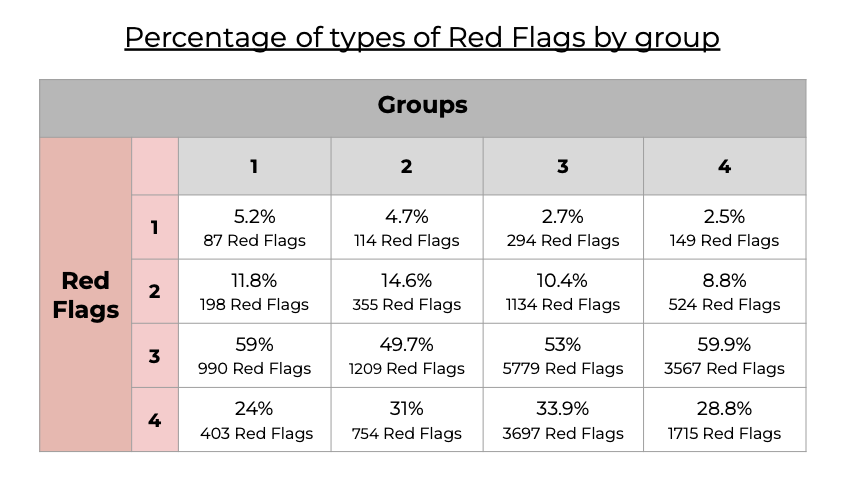Initial Findings
After cross-checking information from the Financial Declarations of public officials, the list of extractive and hydrocarbon industries, and the purchases and contracts of the Colombian State, the key initial findings are:
- Of the 78,328 Financial Declarations processed, 68,222 (87%) could be analyzed. The remaining 10,000 FDs were not in a suitable state to be processed: there were handwritten, scanned or cut documents.
-
Se hallaron 20.969 Red Flags:
- 658 Red Flags type 1, which contemplate the participation of public officials in companies of the extractive sector and companies that supply the State.
- 2.212 Red Flags type 2, which include the participation of relatives of public officials in companies of the extractive sector and companies that supply the State.
- 11.516 Red Flags type 3, which refers to cases in which the officer declares participation in a company but does not declare other income.
- 6.583 Red Flags type 4, which covers cases where the official declares other income but does not declare activity or participation in a company.

- The total number of Red Flags is distributed among 19,814 Politically Exposed Persons (PEPs), which indicates the existence of officials with more than 1 Red Flag.
-
The division of Red Flags by group is:
- 1,635 Red Flags in Group 1. That is, elected officials, authorities of the judiciary and other highest authorities. This is 7.8% of the total number of Red Flags found.
- 2,432 Red Flags in Group 2. That is, second and third level authorities (such as secretaries, directors and attorneys). This is 11.6% of the total number of Red Flags found.
- 10,903 Red Flags in Group 3. That is, others such as operators, teachers, nurses and auditors. This is 52% of the total number of Red Flags found.
- 5,955 Red Flags in Group 4. That is, in those without position or that did not declare position. This is 28.4% of the total number of Red Flags found.

- In all groups, the most common Red Flags are type 3 and type 4, related to inconsistencies in the information included in the Financial Declarations. This reflects the need for tools to standardize the process of preparing the FDs, so that they have as much information as possible in standardized formats.
- The impossibility of analyzing 10,000 FDs also points to the importance of having pre-established and common mechanisms for filling them out.
- The least common Red Flag in all cases is type 1. That is to say, few officials reported having a stake in mining or oil companies and/or companies that supply goods and services to the State.


EITI is the global standard to promote the open and accountable management of oil, gas and mineral resources. Guided by the belief that a country’s natural resources belong to its citizens, the EITI has established a global standard to promote the open and accountable management of oil, gas and mineral resources. The EITI Standard requires the disclosure of information along the extractive industry value chain from the point of extraction, to how revenues make their way through the government, and how they benefit the public, in order to strengthen public and corporate governance.

Directorio Legislativo es una organización independiente sin fines de lucro que trabaja para fortalecer la democracia y hacer que las leyes y la formulación de políticas en América Latina sean más transparentes, representativas y participativas. Logramos esto mejorando el acceso a la información pública y mediante la creación de espacios para que los legisladores y políticos se involucren y sean influenciados por especialistas externos, la sociedad civil y el público en general.
